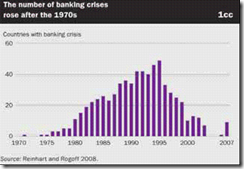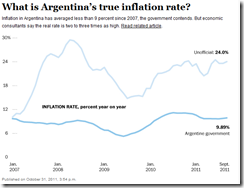Not only has government paranoia almost cost me and my family a vacation, worst, I had to endure a traumatic episode from bureaucratic harassment from local officials.
My basic mistake was to leave my wallet and instead brought my peso cash allotted for our travel expenditures packed into a white business envelope.
At the immigration pat-down, I was asked what the lump in my left front pocket of my pants was which I promptly disclosed.
The inspector told me to step aside from the line and wait for the immigration official, stating that I had exceeded the maximum amount cash (P10,000) allowable for each local citizen to bring abroad, who would decide on my case.
The immigration official arrived and lectured me on my supposed offense. And the officer further said that in breach of the regulation, I was subject to penalty in accordance to the regulations of the Bureau of Customs.
I replied that I DID NOT know about any disclosure procedures, or of any currency exports regulations by individuals.
And prior to the pat-down all I did was to fill up a form where I affixed my signature which DID NOT contain any information about required disclosures.
The immigration departure document looked like this.
Looking back I found the said regulation from IATA’s website
Residents and Non-residents: local currency (Philippine Peso-PHP): up to PHP 10,000.-. Exceeding amounts require authorisation from the Central Bank of the Philippines. foreign currencies : up to USD 10,000.-, or its equivalent. Amounts exceeding USD 10,000.-, or its equivalent must be declared.
Information must be furnished on the source and purpose of the transport of such amount. Violation will be subject to sanctions under Philippine customs law and regulations.
This means I have to apply with the central bank for any amount exceeding 10k pesos to bring abroad! Gadzooks, what onerous red tape!
Back to the airport, the officer suggested that to circumvent the regulation, I could go out of the area and have my (slightly) excess pesos changed into US dollars or other foreign currencies.
However, because of time constraints, doing so risks that we could miss our flight, which would translate to financial losses on our flight tickets compounded by the psychic losses from our frustrated plans.
I pleaded to the officer that the marginally excess pesos (less than 5,000 per head) had been meant for my mom, who is an overseas resident, as a Christmas present. After a few minutes, the officer relented and allowed us through.
Of course, I am thankful to the officer for his ‘generous’ gesture in spite of the hassle.
But such event only reinforced my understanding of how unilateral or arbitrary laws corrupt a system.
-I became an alleged offender for bringing my personal property without knowledge of any breach of the law, and importantly without aggressing upon anybody else (except in the eyes of the enablers and implementers of the regulation, again whose regulations I didn’t know).
-For not enforcing the law, the officer can be construed as being remiss of his duties and equally culpable transgressor.
Yet he did so perhaps in the understanding of the law’s unreasonableness, in my opinion.
The officer knew such law has been repressive, selective in enforcement and would hurt citizens in good faith, thereby perhaps conscience dictated the tolerant decision.
Or it is possible too that the officer has seen enough of our mental and emotional anguish.
-The officer offered an alternative to go around the system (change excess pesos into US dollars), again for the same reasons.
-I was lucky to have that particular officer attend to me. For the outcome would have been different if someone else with malice adjudicated my case. Such regulations could have been used to mulct and extort on us.
And come to think of it, just how can one enjoy a vacation with only 10,000 pesos (USD 227 @44 pesos per USD) in the pocket, especially when visiting a country whose cost of living has vastly been higher than ours?
And considering the millions of local travellers abroad annually, I am quite certain that such regulation have hardly been implemented except for a few instances.
The implication is that such currency control regulation has not been only repressive, selective and arbitrary in implementation but also impractical.
Yet to whose benefit these regulations accrue?
One the political class.
By imposing capital controls, the political class does not want people to vote with their money, or for the markets to expose on their abuses to their constituencies.
The attempt to restrict money outflows, in the guise of preventing money laundering (applied mostly to political opponents rather than to the incumbents and their clients) and blame-the-speculators (not the policies of local politicians and bureaucrats) signify as symptoms of government repression, who coldheartedly would penalize the innocent for their upkeep.
Two, the banking class.
Obviously putting restrictions on cash movements has been designed to bring transactions to the politically privileged banking and finance industry, which have been under the ken or supervision of the political class.
Yet the unintended consequence has been to foster more underground activities, using loopholes (e.g. change to US dollars) or etc., while simultaneously breeding corruption of the bureaucracy.
Let me add that I brought spare cash as insurance from the untoward experience I had 5 years ago, where the failure to access my bank’s overseas ATM network almost left me helpless.
And I have to admit while I have some credit cards, I am an averse or an infrequent user where my credit cards have been meant for emergencies.
Yet another possible unintended consequence would be if there would be an emergency while in another country (say natural disaster), without enough CASH or access to credit cards or ATM, one will be left to suffer an undeserved fate because of such feckless regulations.
I have been reluctant to travel mostly because of my aerophobia, but now I have developed a new phobia: fear of bureaucracy-bureauphobia.


